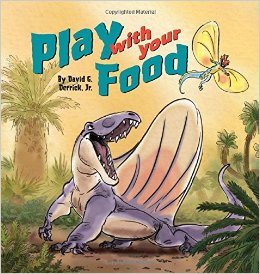2018 School Spending Survey Report
Play with Your Food
, Jr. illus. by David G. Derrick Jr. 36p. Immedium. 2014. Tr $15.95. ISBN 9781597021029. LC 2014008729.
COPY ISBN
In the "eat-or-be-eaten world" of the (pre-dinosaur) Permian
Period, a lizard-like reptile humorously engages a huge Dimetrodon
in a series of silly games to distract the creature from devouring
it. Different-colored fonts scattered across busy spreads may
confuse some readers, but dinosaur fans will enjoy extending their
interests to this earlier prehistoric era. The endpapers feature a
Permian field guide.
ALREADY A SUBSCRIBER? LOG IN
We are currently offering this content for free. Sign up now to activate your personal profile, where you can save articles for future viewing





Be the first reader to comment.
Comment Policy:
Comment should not be empty !!!